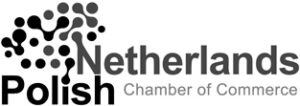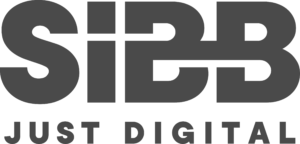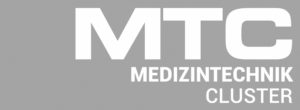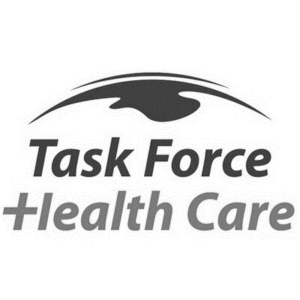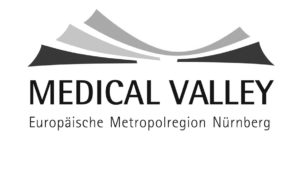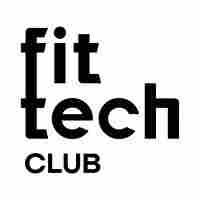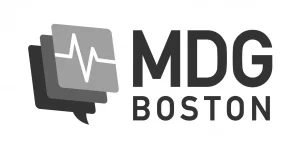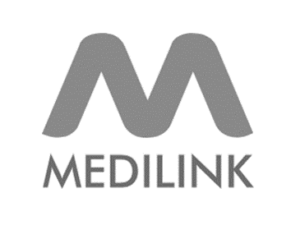Welcome to our Monthly HEALTHTECH NEWS update, where we share the latest updates and interesting insights from the HealthTech Industry.
These developments reflect the rapid advancements and investments in HealthTech, digital health, and medical devices globally.
OVERVIEW
- GE Healthcare Plans Autonomous Imaging
- HEALWELL Acquires Orion Health
- NHS Scotland’s Operational Improvement Plan
- NHS England’s Digital Transformation
- Apple Introduces Clinical-Grade Hearing Aid Feature
- Tvaster Genkalp Secures $1.25 Mn for Liquid Biopsy Cancer Diagnostics
- IISc Bengaluru Introduces Alternative Blood Glucose Monitoring Technique
- Medicover Hospital Introduces Robotic Knee & Hip Replacement in Navi Mumbai
GE Healthcare Plans Autonomous Imaging
GE HealthCare has announced a collaboration with NVIDIA to advance autonomous imaging technologies, focusing initially on X-ray and ultrasound systems. This partnership builds on GE HealthCare’s legacy of medical imaging innovations and its 16-year relationship with NVIDIA. The initiative aims to address challenges such as radiology staff shortages and increased demand for diagnostic imaging caused by aging populations.
Key Details of the Collaboration: Technological Focus: GE HealthCare plans to leverage NVIDIA’s Isaac for Healthcare platform, which incorporates synthetic data generation, physics-based sensor simulation, and reinforcement learning. These tools will enable the training, testing, and tuning of autonomous imaging devices in virtual environments before physical deployment.
Efficiency Goals: Autonomous X-ray and ultrasound systems are designed to reduce repetitive tasks for technicians, standardize imaging processes, and enhance workflow efficiency. This automation could allow healthcare professionals to focus more on patient care and complex cases.
FDA Leadership: GE HealthCare has topped the FDA list of AI-enabled device authorizations for three consecutive years, with 85 authorizations, demonstrating its leadership in healthcare innovation.
Broader Implications: This collaboration seeks to ease the burden on healthcare systems by improving diagnostic efficiency and addressing staff shortages. It represents a significant step toward integrating AI-driven automation into routine medical imaging practices, potentially transforming patient care globally
HEALWELL Acquires Orion Health
HEALWELL AI Inc., a Canadian healthcare artificial intelligence company, has completed the acquisition of Orion Health Holdings Limited, a New Zealand-based global healthcare intelligence platform. The acquisition is valued at approximately NZD$175 million, with an additional performance-based earn-out of up to NZD$25 million. This transaction marks a significant milestone for HEALWELL, enhancing its position in the healthcare technology sector by integrating Orion Health’s advanced data infrastructure capabilities with its AI solutions.
Key Points of the Acquisition
Financial Details: The acquisition was funded through a combination of cash and shares, with additional financing from Canadian banks.
Strategic Impact: The deal provides HEALWELL with a global platform to distribute its AI products, leveraging Orion Health’s strong relationships with public sector clients and its presence in 11 countries.
Operational Benefits: Orion Health supports over 70 public and private sector customers, impacting 150 million patient lives worldwide. This acquisition strengthens HEALWELL’s financial profile by adding large enterprise customers and recurring revenues.
Leadership Changes: Ian McCrae, founder of Orion Health, has been appointed to HEALWELL’s board, along with two other new directors.
Future Implications
The acquisition is expected to enhance healthcare outcomes by integrating HEALWELL’s AI technology with Orion Health’s data management solutions, such as the Virtuoso and Amadeus platforms. This integration aims to improve decision-making and care delivery in healthcare systems globally.
NHS Scotland’s Operational Improvement Plan
NHS Scotland’s Operational Improvement Plan is a comprehensive strategy aimed at enhancing healthcare delivery across Scotland. The plan focuses on several key areas to improve patient care and reduce waiting times. Here are the main components of the plan:
Key Components of the Operational Improvement Plan
Improving Access to Treatment: The plan aims to increase access to treatment by creating 150,000 extra appointments and procedures through enhanced regional and national collaboration, supported by an additional £200 million investment.
A seven-day service in radiology will be introduced to ensure that 95% of referrals are seen within six weeks by March 2026.
Shifting the Balance of Care: The plan emphasizes shifting care from hospitals to primary care settings. This includes expanding Hospital at Home services to at least 2,000 beds by the end of 2026, providing hospital-level care in patients’ homes.
Specialist frailty teams will be present in every A&E department by summer 2025 to improve patient flow and care.
Digital and Technological Innovation: The plan adopts a “stronger digital-first approach” with the national rollout of the Digital Front Door app. This app will allow patients to view hospital appointments, receive communications, and update personal information. An initial release is planned for December 2025 in Lanarkshire, with a full rollout in 2026.
A digital dermatology pathway will be rolled out to all health boards by the end of spring 2025, enabling GPs to capture images of skin issues for dermatology referrals.
Prevention and Community Care: The plan includes a £10.5 million investment in general practice to prevent heart disease and frailty, making it easier for people to access healthcare services.
The NHS Pharmacy First Scotland service will be expanded to enable community pharmacists to treat more clinical conditions, reducing the need for GP visits.
Funding and Implementation
The plan is supported by a significant investment of £21.7 billion in health and social care for the 2025-26 budget, with targeted funding for workforce recruitment and digital innovation. The implementation phase will build on engagement with NHS staff and professional bodies to ensure effective delivery of these improvements
NHS England’s Digital Transformation
NHS England’s digital transformation is a comprehensive effort to modernize healthcare services by leveraging technology. This initiative aims to enhance patient care, streamline operations, and improve data management across the NHS. Here are some key aspects of this transformation:
Key Initiatives and Programs
Frontline Digitisation Programme: Introduced in 2021, this program supports healthcare organizations in transitioning from paper-based systems to digital ones for patient information and clinical notes. It aims to achieve a core level of digitisation by implementing electronic patient records (EPRs) and other critical systems.
NHS Long Term Plan: Published in 2019, this plan emphasizes the role of digital technology in improving healthcare delivery. It includes expanding digital health tools, enhancing the NHS App for secure access to medical records, and improving interoperability among NHS IT systems.
Digital Transformation Portfolio: This portfolio outlines the government’s strategy for using IT to enhance health and social care services. It includes significant investments in digital infrastructure and transformational programs.
Benefits and Challenges
Benefits: Digital transformation can free up staff time, promote collaborative working, and enhance patient care by providing faster and more convenient services. For example, digital tools like the BadgerNet Maternity Notes App have reduced paperwork and improved access to patient information.
Challenges: The abolition of NHS England has raised concerns about potential disruptions to ongoing digital projects and funding allocations. However, some leaders see this change as an opportunity to reduce bureaucracy and accelerate digital progress.
Future Directions
Integration and Interoperability: A key focus is on ensuring that NHS IT systems can share vital information seamlessly, supporting better care coordination and decision-making.
Investment and Funding: Recent budgets have allocated significant funds to support digital transformation, including £3.4 billion for NHS tech and digital capital investments.
Overall, NHS England’s digital transformation is crucial for modernizing healthcare services, improving patient outcomes, and enhancing operational efficiency. Despite challenges, the NHS continues to invest in digital technologies to achieve these goals.
Apple Introduces Clinical-Grade Hearing Aid Feature
Apple has recently introduced a clinical-grade hearing aid feature for its AirPods Pro 2, marking a significant advancement in hearing health technology. This feature includes several key components designed to enhance hearing support and protection:
Key Features of the Clinical-Grade Hearing Aid Feature
Active Hearing Protection: This feature is designed to minimize exposure to loud sounds, helping protect users’ hearing in noisy environments.
At-Home Hearing Test: Users can take a clinical-grade hearing test using their AirPods Pro 2 and a compatible iPhone or iPad. The test takes about five minutes and provides an interactive experience, assessing hearing loss levels for each ear. The results include an audiogram that can be shared with healthcare providers.
Over-the-Counter (OTC) Hearing Aid Mode: This feature allows users with mild to moderate hearing loss to adjust sound frequencies in their AirPods Pro 2, providing personalized support in noisy environments. It is not intended to replace prescription hearing aids but offers assistance for mild hearing difficulties.
Impact and Reception
Accessibility and Awareness: Apple’s move into the hearing care space aims to democratize access to hearing health solutions, making it easier for people to monitor and manage their hearing.
Clinical Validation: The features were extensively tested in specialized facilities to ensure they meet clinical standards while remaining user-friendly.
Privacy and Security: User health data, including hearing test results, is stored securely in the Health app and can be shared with healthcare providers if needed.
The introduction of this feature has been welcomed by organizations like the Royal National Institute for Deaf People (RNID), highlighting its potential to improve the lives of millions affected by mild to moderate hearing loss.
Tvaster Genkalp Secures $1.25 Mn for Liquid Biopsy Cancer Diagnostics
Tvaster Genkalp has secured funding to expand its liquid biopsy cancer diagnostics, marking a significant advancement in early cancer detection and personalized medicine.
Key Features of Episcreen™ Liver
Accuracy: Achieves 90% sensitivity, significantly outperforming the traditional Alpha-Fetoprotein (AFP) test, which has only 50% sensitivity.
Non-Invasive: Provides a safer and more accessible alternative to conventional diagnostic methods.
Impact: Early detection improves survival rates by over 70%, addressing the global burden of liver cancer, which affects over 900,000 people annually
India’s First 2,000-Km Robotic Cardiac Telesurgery Conducted: A groundbreaking robotic cardiac telesurgery was performed over a distance of 2,000 km in India, showcasing the potential of remote surgical interventions.
IISc Bengaluru Introduces Alternative Blood Glucose Monitoring Technique
Researchers at the Indian Institute of Science (IISc) Bengaluru have developed an alternative method for monitoring blood glucose levels, which could improve diabetes management.
Key Features of the Technique:
Photoacoustic Sensing: A laser beam is directed onto the skin, where it is absorbed, causing slight heating (<1°C). This induces tissue expansion and contraction, generating ultrasonic sound waves that are detected by sensors.
Chiral Properties of Glucose: Glucose’s structural asymmetry (chirality) causes polarised light to rotate, altering the intensity of emitted sound waves. This relationship enables accurate glucose measurement without piercing the skin.
Depth Measurement: The technique can measure glucose levels at various tissue depths by mapping sound signals based on the speed of sound in tissues.
Research and Results:
The method demonstrated near-clinical accuracy in estimating glucose concentrations in water, serum solutions, and animal tissue slices. A pilot study on a healthy human participant tracked blood sugar levels before and after meals over three days.
The researchers also tested broader applications, successfully measuring concentrations of naproxen (a pain medication), indicating potential use for other chiral molecules.
Challenges and Future Development:
Current setups require expensive and bulky laser sources emitting nanosecond pulses. Efforts are underway to make the system compact for clinical use.
Researchers aim to refine the technology for widespread adoption and explore additional diagnostic applications beyond glucose monitoring.
This innovative approach could revolutionize diabetes management by eliminating the discomfort and risks associated with needle-based testing methods.
Medicover Hospital Introduces Robotic Knee & Hip Replacement in Navi Mumbai
Medicover Hospital has started offering robotic-assisted knee and hip replacement surgeries, enhancing precision and recovery times for patients.
Key Features of the MISSO Robotic System
Enhanced Precision: The system uses 3D imaging to optimize implant positioning and preserve soft tissues, leading to more accurate surgeries.
Faster Recovery: Patients can return to their normal routine sooner due to reduced hospital stays and less post-operative pain.
Reduced Complications: It minimizes blood loss and lowers the risk of infections, contributing to safer surgical outcomes.
HBCH Punjab & IIT Mandi Collaborate on AI-Driven Cancer Research: This collaboration aims to leverage AI for improving cancer diagnosis and treatment outcomes, highlighting the growing role of AI in healthcare.
SOURCES
https://www.apple.com/newsroom/2024/09/apple-introduces-groundbreaking-health-features/
https://htn.co.uk/2025/03/31/apple-introduces-clinical-grade-hearing-aid-feature-for-airpods-pro-2/
https://htn.co.uk/2025/04/02/healwell-acquires-orion-health-for-776m/
https://orionhealth.com/global/media-releases/healwell-completes-acquisition-of-orion-health/
https://www.canhealth.com/2024/12/18/healwell-to-acquire-orion-health/
https://www.nhsconfed.org/publications/frontline-digitisation/
https://www.longtermplan.nhs.uk/areas-of-work/digital-transformation/
https://www.england.nhs.uk/digitaltechnology/
https://www.gov.uk/government/groups/personalised-health-and-care-2020/
https://committees.parliament.uk/work/6694/digital-transformation-in-the-nhs
https://www.healthcare-management.uk/nhs-scotland-publishes-operational-improvement-plan-17434
21131/
https://www.nationalhealthexecutive.com/articles/plan-strengthen-scotlands-nhs
https://www.cps.scot/latest-news/nhs-pharmacy-first-expansion/

